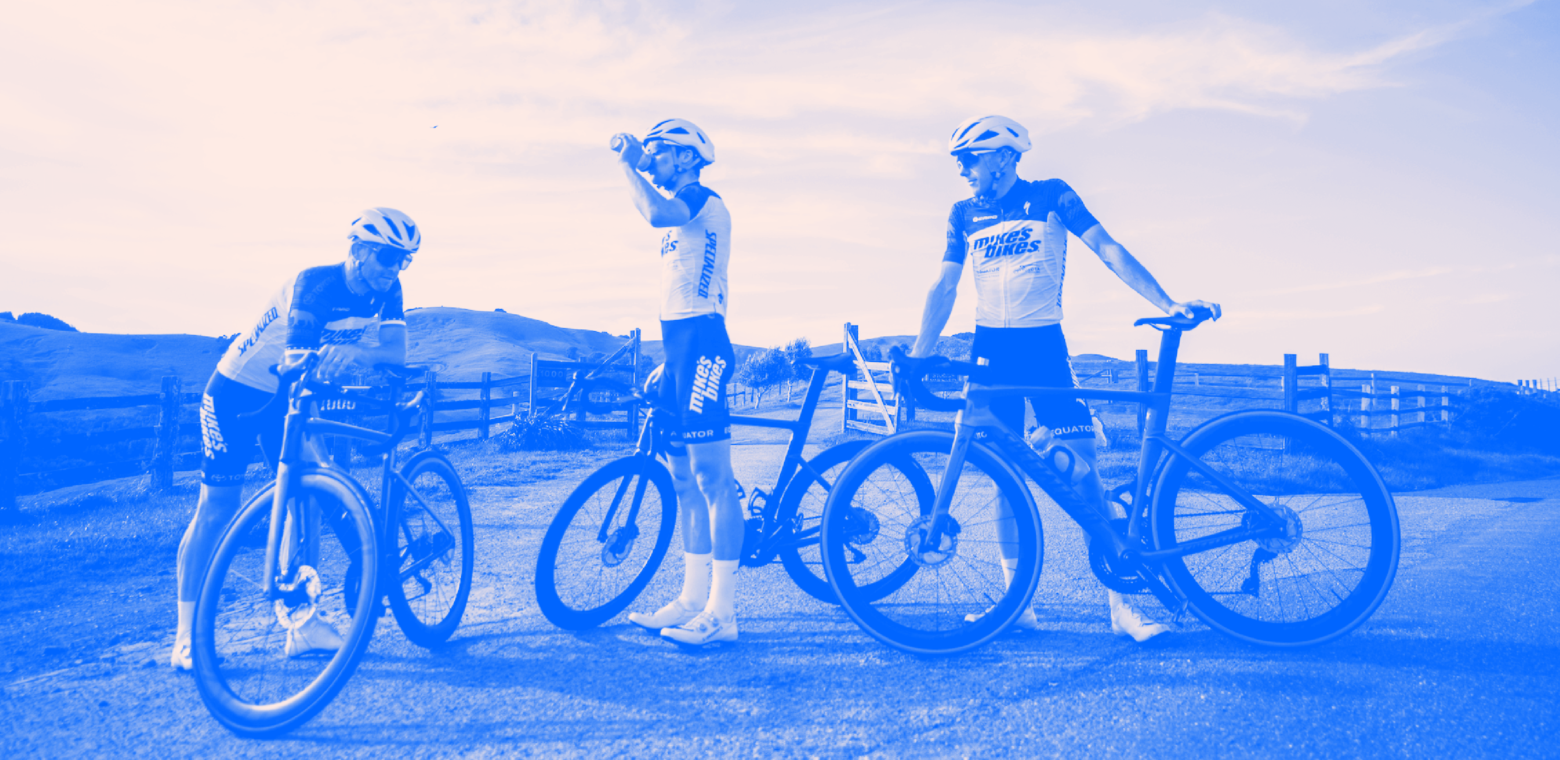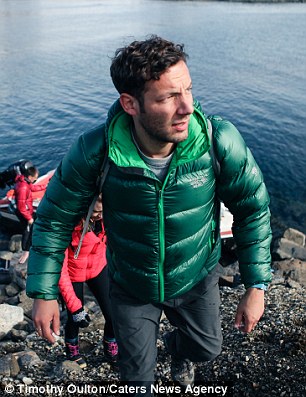Mike’s Bikes has achieved legendary status in the sporting goods world, by prioritizing staff, customers and the greater good. Here’s how the California-based company rides to success.
As a business, Mike’s Bikes has one overriding goal: to get as many people on bikes as possible. And in recent months, they’ve had to pedal particularly hard to keep up with demand.
That’s because, since the coronavirus pandemic took hold, a nationwide cycling boom has been gathering momentum. Recognizing an easy means for mental and physical release from the repetition of lockdown life, thousands of Americans have been looking to get into – or back into – the saddle. And that’s where Mike’s Bikes comes in. Nicknamed “the biggest local bike store in the US”, the award-winning independent chain has been perfectly positioned to deal with the acceleration in two-wheeled-demand.
“Our entire landscape has completely changed as a result of coronavirus,” says Tom Casson, the company’s director of retail. “We’re dealing with significantly higher volumes of customers and orders, as thousands of people are discovering or rediscovering the freedom and fun that a bicycle provides.”
The good news is that the business has managed to switch gears and steer itself through the current bike boom with remarkable ease. And that’s thanks to the solid organizational and logistical foundations already in place across its 12 California-based stores and nationwide online retail operation.
At the heart of proceedings are the ‘Five Core Values’ that Mike’s Bikes is built upon: teamwork, competition, awesomeness, continuous improvement and the greater good.
“One day we just sat down and thought: what are we trying to do here?” says Casson. “That’s how we came up with our five core values. Working well as a team and being competitive with each other helps us all to succeed and continuously improve, but we’re always looking for potentially awesome new ideas to add to the mix too. The greater good ties in with our charity work, particularly our Africa foundation, which is an important part of what we do.”
These five core values influence everything at Mike’s Bikes, from stock to sales to staffing decisions. They underpin a well-oiled machine that has grown to encompass 250 employees, sell more than 25,000 new bikes a year, and win multiple prestigious awards, including the coveted title of ‘America’s Best Bike Shop’, courtesy of the National Bike Dealers Association.
First on the list of these core values, teamwork is the fundamental chain that keeps Mikes Bikes’ wheels moving. As such, it’s lubricated on a regular basis by everything from weekly group rides to staff picnics, to an official racing team – which is also used as a firsthand means of road (and trail) testing new product in challenging conditions.
“There are a lot of things that make this a great place to work, but above all it’s the camaraderie,” says J.T. Toepel, General Manager of the company’s Walnut Creek store. “We all love bikes, and coming to work every day at a place where everybody is stoked on the same thing is pretty awesome.
“The team dynamic here is really strong. At my store, we have daily huddles every morning where we go over key points from the previous day and set goals, so everyone is on the same page. We also pay attention to where our store is trending, which brings in that friendly rivalry with the other 11 stores. Within Mike’s Bikes, everyone wants to see everyone else do really well, but there’s definitely some healthy competition in there too.”
That sense of conviviality and comradeship has been a key part of Mike’s Bikes’ DNA since the business began in 1964. One of the first places in the country to stock mountain bikes when they began emerging out of Marin County in the 1970s, Mike’s Bikes has always benefitted from, and built upon, the strong cycling heritage of its native California.
“Cycling has a huge demographic out here in California, and Marin is the birthplace and spiritual home of mountain biking,” says Toepel. “On top of that, we have some of the best trails in the world on our doorstep, so you could definitely say we’re coming out of the right place. The NICA (the National Interscholastic Cycling Association) is based here too, which is huge for getting kids into mountain biking, so we work closely with them to provide special offers and discounts for high schoolers looking to get into the sport.”
If this NICA scheme fits firmly into the ‘greater good’ bracket of the company’s five core values, so too does the Mike’s Bikes Foundation – a series of charitable projects across Africa. Since 2008, the Foundation has sent more than 30,000 bikes to communities in need across the continent, more specifically countries including Ghana, Sierra Leone, Botswana, Kenya, Lesotho, Zimbabwe and Namibia. Locations are carefully considered and pinpointed, in order for the bikes to help people in the most isolated communities gain easier access to schools, fresh water and health care.
“We believe passionately in the power of the bicycle and what it can do for people’s lives,” says Casson. “Ultimately, we decided to focus our efforts on Africa, because we could potentially make such a positive impact on people’s livelihoods there.
“It’s a pretty simple process: customers donate their used bikes to any of our stores in California, then they’re loaded into a 40ft shipping container and sent to Africa. Each year we work with guys at the other end, teaching them how to fix the bikes and tune them up. It’s a project that’s incredibly important, and very near and dear to our hearts.”
Many of those customers will subsequently find themselves in the market for shiny new rides to replace their Africa-bound steeds, of course. And at the retail end of things, Mike’s Bikes has recently streamlined its system too – harnessing the power of Trello as its CRM tool of choice.
“Trello touches on many of our core values,” says Eric Lucan, the company’s chief marketing officer. “By tracking customer interactions through Trello cards, we can work as a team to provide the best possible service. We can also use it as a tool to see which co-workers have developed and converted the most leads – which creates healthy competition in shops and between shops.”
Trello propels the business forward by giving all staff the ability to see, in real time, what’s happening as a client moves from their first preliminary visit to their first test ride, to their final purchase – and what their needs are along the way. Simultaneously, it allows employees to track new leads, set up reminders, and transfer information between employees and between shops. As a means of collaboration and sales management, it creates a seamless purchasing process – turning what was once an uphill struggle involving scraps of paper and post-it notes, into a smooth downhill cruise.
“In terms of the day to day running of my store, Trello is an enormous help,” says Toepel, the Walnut Creek manager. “When somebody comes in to look for a bike, and they test ride a model, a Trello card is automatically created with some basic information. The salesperson can go in and make notes: what did the customer ride? Was this their first ride? Are they going to come back later? Are we special ordering something for them? And so on. It allows us to keep track of what’s going on, and for us to follow up and create great relationships with our customers – which means they come back in and buy more bikes, and tell their friends about their positive experience. It’s a great tool for our organization.”
Of late, the data on Trello has been indicating one stand-out star in terms of sales categories – a trend which has only increased during lockdown. And surprisingly, it’s neither mountain bikes nor road bikes at the front of the current pack.
“Everyone seems to want an electric bike at the moment, and it’s all ages,” says Casson, the director of retail. “We’re seeing grandfathers wanting to get out on the trails with their grandkids, or fit riders in their twenties and thirties wanting to get a little further up that mountain after work.
Electric or not, bikes continue to roll out of the doors, ridden by happy customers. And as long as that happens, Casson is happy too.
“We’re selling a product that we’re passionate about, a product that improves people’s lives and a product that provides alternative transportation, which is particularly important right now,” he says. “If you’re worried about health or the health of your family, you don’t have to sit on a bus or a train to get somewhere, you can ride a bike – and that’s a very positive message.”

